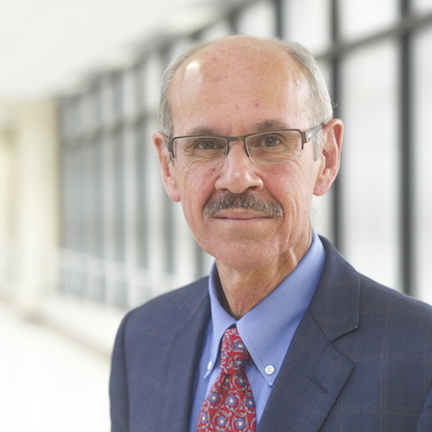 The University of Alabama at Birmingham has received a $4 million grant from the National Institutes of Health to study methods of countering exposure to bromine, a highly toxic liquid commonly used as a flame retardant and in the manufacture of photographic film. It has also been used as a poison gas.
The University of Alabama at Birmingham has received a $4 million grant from the National Institutes of Health to study methods of countering exposure to bromine, a highly toxic liquid commonly used as a flame retardant and in the manufacture of photographic film. It has also been used as a poison gas.The grant is funded by NIH’s CounterACT Program, a national effort to improve medical countermeasures in the case of industrial accidents and terrorist attacks involving chemical agents such as chlorine and bromine.
The research team, led by Sadis Matalon, Ph.D., professor, vice chair for Research and director of the Division of Molecular and Translational Biomedicine, Department of Anesthesiology and Perioperative Medicine, will focus on developing agents that can minimize and, in some cases, reverse lung injury.
Matalon’s team has identified one potential agent, aerosolized high-molecular-weight hyaluronan, for further study in treating bromine exposure. Previous studies showed that high-molecular-weight hyaluronan is effective in treating exposure to chlorine. Chlorine and bromine are similar, but are sufficiently distinct to warrant further investigation into the agent’s effects on bromine.
The researchers hope to establish biomarkers for bromine exposure, while assessing bronchospasms, airway hyperactivity and pulmonary edema to determine methods for decreasing morbidity and mortality.
Matalon and UAB faculty Anupam Agarwal, M.D., Division of Nephrology, Rakesh P. Patel, Ph.D., and Victor Darley-Usmar, Department of Pathology, and Namasivayam Ambalavanan, M.D., and Tamas Jilling, M.D., Division of Neonatology, have collaborated on previous CounterACT-funded studies.
“Each of our UAB collaborators has studied unique countermeasures to prevent injury within his specialty, but the challenge is to put everything together,” said Matalon, who is also the director of the UAB Pulmonary Injury and Repair Center. “We have a consolidated effort to bring people with different talents and expertise together, thanks to the collaborative culture at UAB. UAB leadership, in particular the chair of Anesthesiology, Dr. Tony Jones, has provided infrastructure and resources to allow this to happen.”
In addition, Matalon and a research team consisting of Aftab Ahmad, Ph.D., Rakesh P. Patel, Ph.D., and Louis Dell’Italia, M.D., will be working with esteemed cardiothoracic surgeon Sir Magdi Yacoub, O.M., FRS, professor of cardiothoracic surgery at Imperial College, London, to test the efficacy of nitrate and nitric oxide in the treatment of acute lung injury and pulmonary hypertension resulting from chlorine and bromine exposure under a grant from Heart Biotech Holdings Ltd.